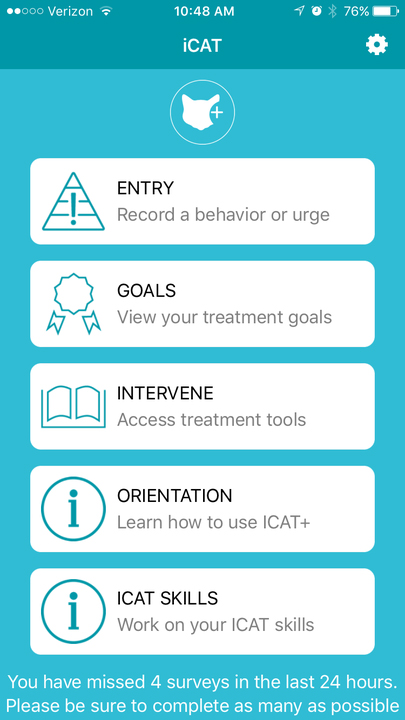
Researchers at Drexel University are currently developing an app called iCAT+ that will provide mobile counseling to people who suffer from binge eating disorder or bulimia nervosa.
Over the next two years, the Laboratory for Innovations in Health-Related Behavior Change will seek out the help of around 50 volunteers to test the app’s effectiveness.
iCAT+ deploys the use of Cognitive-Affective Therapy to identify its users’ binge triggers and remind patients of coping mechanisms they’ve learned in therapy.
Adrienne Juarascio has been studying therapy techniques for eating disorders since she was an undergraduate student at the University of Pennsylvania. As an associate research professor in the College of Arts and Sciences, she leads the iCAT project.
She said her team’s goal is to develop a smartphone app that will help patients be more able to respond and use treatment skills outside of their therapy hours.
“Patients with bulimia and patients with binge eating, they often struggle to implement the skills they learn in a therapy office outside in their day-to-day lives,” she explained.
Juarascio said patients might come to therapy for an hour a week and learn various coping methods to work past their patterns of emotional or binge eating. But implementing these coping methods in real life can be very challenging. In addition to using new coping skills, they’re often asked to keep records of meals they’ve eaten and reduce their dietary restraints.
“It’s really easy for patients to struggle with that,” Juarascio said. “They might go in, you know, with the best of intentions, to use those skills during the week. But then when they come back into therapy they maybe forgot when they should have used them or they tried using them and it was difficult.”
Poor adherence to patient recommendations makes it difficult for patients to get the maximal benefits from the therapy that they’re getting, Juarascio said.
The iCAT app focuses on the emotional antecedents of binge eating. Users are prompted a few times a day by a push notification to answer questions about their emotions and stress levels.
The app tracks this data and sends patients coping suggestions when its algorithm detects they’re feeling increases in depression or anxiety.
“The idea behind this treatment is that binge eating doesn’t come out of nowhere. It’s often triggered by stress or negative assets in the patient’s day-to-day life,” she said. “Right now, bulimia patients are more likely to binge when they’re feeling depressed or feeling anxious just using food as their coping mechanism.”
Suggestions for patients might be things like talking to a friend, getting out of the house or away from food or working on their ability to tolerate discomfort.
The last suggestion, Jurasco said, is often very challenging. `
“When patients have an urge to binge it can often be really uncomfortable for patients not to give into that urge,” she said.
But just because they’re having an urge or a craving doesn’t mean they have to give into it.
“That discomfort will eventually go away all on its own, even if they don’t give in,” Jurasco said.
Each participant in this study comes in once a week for individual therapy with their therapist. Clinicians have access to clinician portal where they see the patient’s app compliance and utilization.
They can see charts and graphs that plot a patient’s triggers, like stress or anxiety, against their binge eating episodes. This data provides the therapist with more information about their patients and how they are doing using the skills they’ve learned in therapy outside therapy appointments.
Juarascio is also working on a related project called EMOTE, which is much earlier in its stage of development.
EMOTE uses a wearable sensor device, similar to a Fitbit, to monitor a patient’s heart rate, heart rate variability and galvanic skin response and uses this data to predict episodes of anxiety or depression, triggers to many patients’ urges to engage in emotional or binge eating behavior.
“The goal ultimately is to be able to use that data to sync with the app so that the app can detect automatically, you know, within a couple seconds when you’re starting to have that rise in negative assets and send you a personalized message of intervention at those moments of need,” Juarascio said.
The next phase of the project will be integrating the EMOTE project into iCAT+.
Currently, both iCAT and EMOTE projects are seeking volunteers for their preliminary research. Participation in the iCAT project is open to anyone who wants to get therapy for binge eating or bulimia. Participation in the EMOTE project is open to anyone who experiences emotional eating behaviors.
Volunteers are compensated for their time, and Drexel students in psychology classes may receive extra credit for their involvement.

